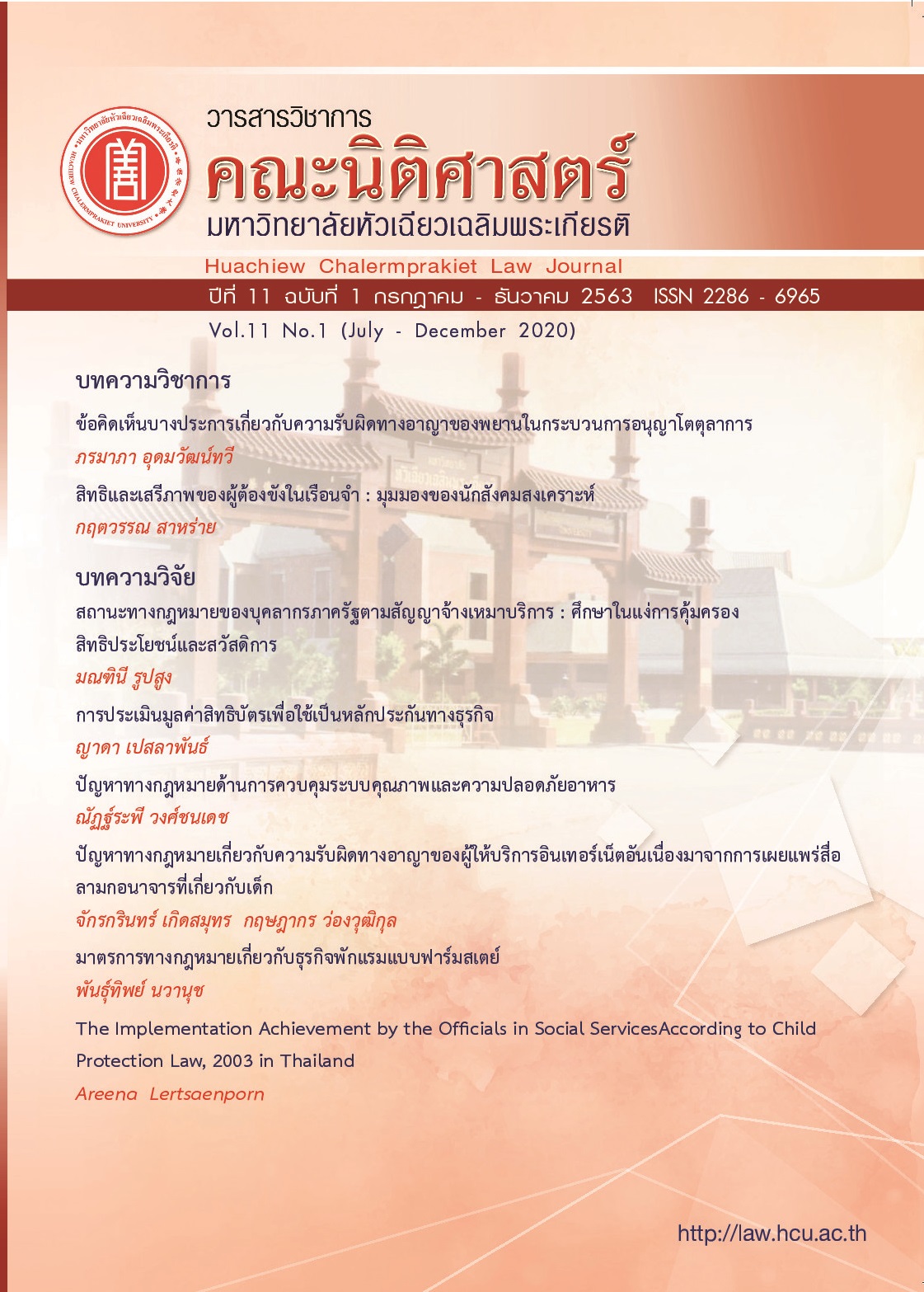The Rights and Freedoms of Inmates in prisons: The Perspective of a Social Worker
Abstract
Comparing the Corrections Act 2017 with Maslow's hierarchy of needs, it can be seen that most human needs can be met with steps 1-5, including physical needs, needs Security, desire for friendship and love, respect and fullness of life, but for inmates in prison, the needs of inmates are In steps 1-2 only, both of which are still limited in some areas, such as medical care that has limitations on personnel, housing, space is limited in a bed, and in stages 3- 5 It is difficult to do because of the limitations of imprisonment. Suggestions should be made to amend the law on the rights of inmates on the following 5 points: 1) The rights of inmates to contact relatives, prisons should be adjusted to visit relatives in various ways, in addition to visiting relatives at the prison, provided There is an interactive online communication room between inmates and family members to meet psychological needs.2) Providing a clinic for prisons counselling to screen inmates with stress, mental symptoms into the system for close monitoring 3) Prisons should provide a multidisciplinary team to rehabilitate and develop the behaviour of inmates, focusing on the change of mind and mind to lead to behaviour changes 4) Right of residence, the prison has limited sleeping space, the bed should be improved to reduce congestion 5) Occupational rights should be added to the law to establish a committee to seriously promote inmates' career and work in coordination with all sectors.
Downloads
Published
How to Cite
Issue
Section
License
บทความหรือข้อความคิดเห็นใด ๆ ที่ปรากฏในวารสารฉบับนี้เป็นวรรณกรรมของผู้เขียนโดยเฉพาะ คณะนิติศาสตร์มหาวิทยาลัยหัวเฉียวเฉลิมพระเกียรติ และกองบรรณาธิการไม่มีส่วนรับผิดชอบหรือไม่จำเป็นต้องเห็นด้วยกับข้อคิดเห็นนั้น แต่ประการใด








